In my mid-to-late-twenties, I looked pretty extreme. I think almost everyone who knew me before had given up on me: an aunt I rarely saw, a close friend of my fathers, even some of my “gay” bar buddies from San Francisco. They were polite when they saw me, we would shake hands or even hug, but when I turned to walk away, they looked at the floor and shook their heads. I think my parents were the only two people on earth who could still recognize the person I once was beneath the endlessly shifting colors of blonde, purple, or red hair, the ever growing number of tattoos across my body, and the multiple heavy-gauge barbell rings that hung from my every punctured protrusion. Somewhere, not even I knew, was the young man they loved.
For thirteen years, from kindergarten until the 12th grade, I tried to remain as inconspicuous as possible. From a very early age, I thought I was different from other little boys. Early on, I tended to cautiously hold back and observe or feign some imaginary illness rather than participate in schoolyard play and mandatory team sports during physical education classes. When forced to take part, I was probably no better, but perhaps slightly less coordinated than most of the other boys, but the still standing-on-the-mound strike-out ribbing hit me hard. While other boys dusted it off, I collected and counted each particle. I took everything personally. I remembered every unkind word and they seemed to linger in the air like toxic nuclear fall-out. Days later, I thought everyone around me could still hear them. What was casually said became floating embers that would not cool as it floated in the air. Instead, they landed on my skin and it felt as if each one burned a hole into my flesh. In being “gay,” I thought I could finally wash all that off. Like a phoenix, I could emerge reborn from the ashes of my former persecution and torment. Everyone, I thought, should venerate this newfound happiness after years of denying my true identity.
It all began at home where I was overly sensitive. My father was unlucky enough to be born in a backwater of Sicily just before the outbreak of World War II. During his childhood, there was no time for little considerations or civilities in manner. The best you could do – was to survive another day. You were either willful, quick, and determined or just another one of the nameless corpses thrown into a forgotten shallow grave. I’ve heard some of the stories, but I still can’t imagine what he went through.
The most important human relationship for a boy is the one he will have with his father. It sets up everything that happens later in life. This is not to disregard the essential role played my mothers, but their impact is primarily significant in terms of how they react to the interaction between father and son. As is often the case with the pre-homosexual boy, a caring mother will instinctively protect a somewhat delicate or apprehensive boy from an aggressive and demanding father. In being “gay,” I thought I would find a patient and accepting man who could usher me into masculinity.
Although I’ve always thought of myself as leaning towards being artistic and introspective, was I born with such an inclination or did I swerve in that direction because I perceived rejection from men? In fact, “gay” men have an innate attraction towards masculinity – hence a childhood fascination with macho superheroes and the recurrent fantasy of rescue and redemption by a caring yet strong male savior. Because this role was never fulfilled by the first man in every boy’s life – his father, that void is left to be filled by someone else. When I was a teenager, the only men to reach out to that friendless young man were “gay” men.
My father never accepted that I was “gay.” At the time, I thought this a further example of his stubborn certitude and tendency towards harsh criticism. I acted like I didn’t need nor want his approval, but I did. Many of my friends had that from their parents, some did not. But for the most part, the unconditional-love that we determined as a requirement for continued communication with our family was usually only forthcoming from our mothers. Because I knew my father did not acknowledge who I was, for awhile I kept quiet. Later, I stayed away. One time I did try to push the matter, but my father pushed back.
Some of my friends were sympathetic with my plight. These men had acquiescent parents, or at least mothers who defied their obstinate husbands; or had altogether divorced them – choosing instead to remain loyal to a rejected son. I became decidedly envious when I overheard chance conversations among friends and various members of their family; it was not unusual for accepting and allied mothers, sisters, and assorted cousins to make an almost sacred pilgrimage to San Francisco so that they too could witness the consummation of the long suffering and tortured boy they once knew. I occasionally tagged along as friends showed their rather stunned relatives around the Castro District. Usually during lunches, someone would nonchalantly refer to her son’s new “husband” or recognize a friend by his drag name. I can recall a couple of instances when the chatter turned towards sex and I was disturbed by the frankness of both the descriptions and ease by which certain details were revealed. Later, some of these women wanted to accompany us as we went out for the evening. For awhile, the antics of one outrageously loud mom was passingly amusing to everyone within earshot while she sat at the bar of my favorite disco, but I soon grew bored and left the scene to dance by myself.
At first, I thought this intimacy between my friends and their family affirmed an intense love that bound together a mother and her son, or a brother and his sister. I was jealous. But when the lives of these men started to sometimes unravel on account of the lingering and persistent phantom of isolation and sadness, the celebratory family and friends were wholly unprepared and unequipped to help or offer an alternative besides the usual platitude of – “it gets better.” Those who saw the pink hair and the piercings as a decisive manifestation of their son’s true self were also easily distracted by the visual diversions which hid a human being in pain. A return home offered no solace or safe-space since it became an extension of the gay community. In contrast, I occasionally realized that I had a place to go. At first, it was a home in which I tested allegiances. After years of feeling rejected, I thought at least that was owed to me. But the price of complacency as a means to keep me placated was too much – because it meant a lot more than that. It meant turning their back on me, and ultimately on God.
Over the years, even since leaving homosexuality, I have gotten to know countless “gay” men and women and often those with the most flamboyant demeanors and outrageous appearance are carriers of the deepest and most hidden torments. Usually with very little encouragement, they will open up about something traumatic from their past. As they share a private memory about themselves, it can be difficult to remember that there is a man beneath the massive wig and all the industrial strength makeup. But when they recall a story from childhood that seems uncannily familiar, I can almost instantaneously envision the boy they once were. And it’s not difficult, because that same kid – was me. What they have tried to bury remains oddly close to the surface. It’s almost as if that which they don’t want anyone to know, they subconsciously hope someone will notice by accident.
Max Beckmann, “The Prodigal Son Among Swine” (1918).
Was I ever gay? Is anyone gay? Or was I just a hurt boy who tried to deal with the anguish in the only way he knew how? For a long time, I thought I understood exactly my identity. Up until then, everything had been a process of shame, self-discovery, and eventual realization. The only thing left was for everyone around me to honor my courage and forthrightness. Refusing to do so, according to the argument from the LGBT community, literally puts the life of your child at risk. But the problem with these advocacy studies is that they do not explore the level of dysfunction already present in a family with a high level of (often violent) rejection towards a “gay” son or daughter. These studies are also not long-range in their scope. While approval by a family might provide an immediate comfort, what happens afterwards to these same men and women? For instance, because of the profound sadness in my youth, even if everyone and every institution I ever knew and encountered, including my entire family as well as the Catholic Church, early-on welcomed and sanctified my sexual orientation, the heartache would have remained; and it followed me into adulthood. In my experience, only those “gay” men and women with at least one close relative or friend that never accepted their homosexuality had any chance at another life. When everyone you love and respect is on the same comfortable train as you are – why would you ever get off? For myself, my time as a “gay” man started out like something from the Orient Express and ended up finishing with “Terror Train.” Thank God, when this locomotive to nowhere pulled up to a deserted station – my parents were there waiting for me.
The young man in the parable of “The Prodigal Son” was presumably unrecognizable after he squandered his fortune, youth, and health on riotous living; the degrading effects of a devastated belief in once sacred illusions crushes the body and the spirit. The plight of this boy is clearly evident in a masterwork by German Expressionist Max Beckmann where the almost inhuman “prodigal,” starving and living with the swine, is virtually indistinguishable from the pigs which surround him. Yet, when he was nearing his family home, the father of the “the prodigal son” recognized his child. The father who refused to identify his wayward son with the boy’s self-professed inordinate desires welcomes him home.
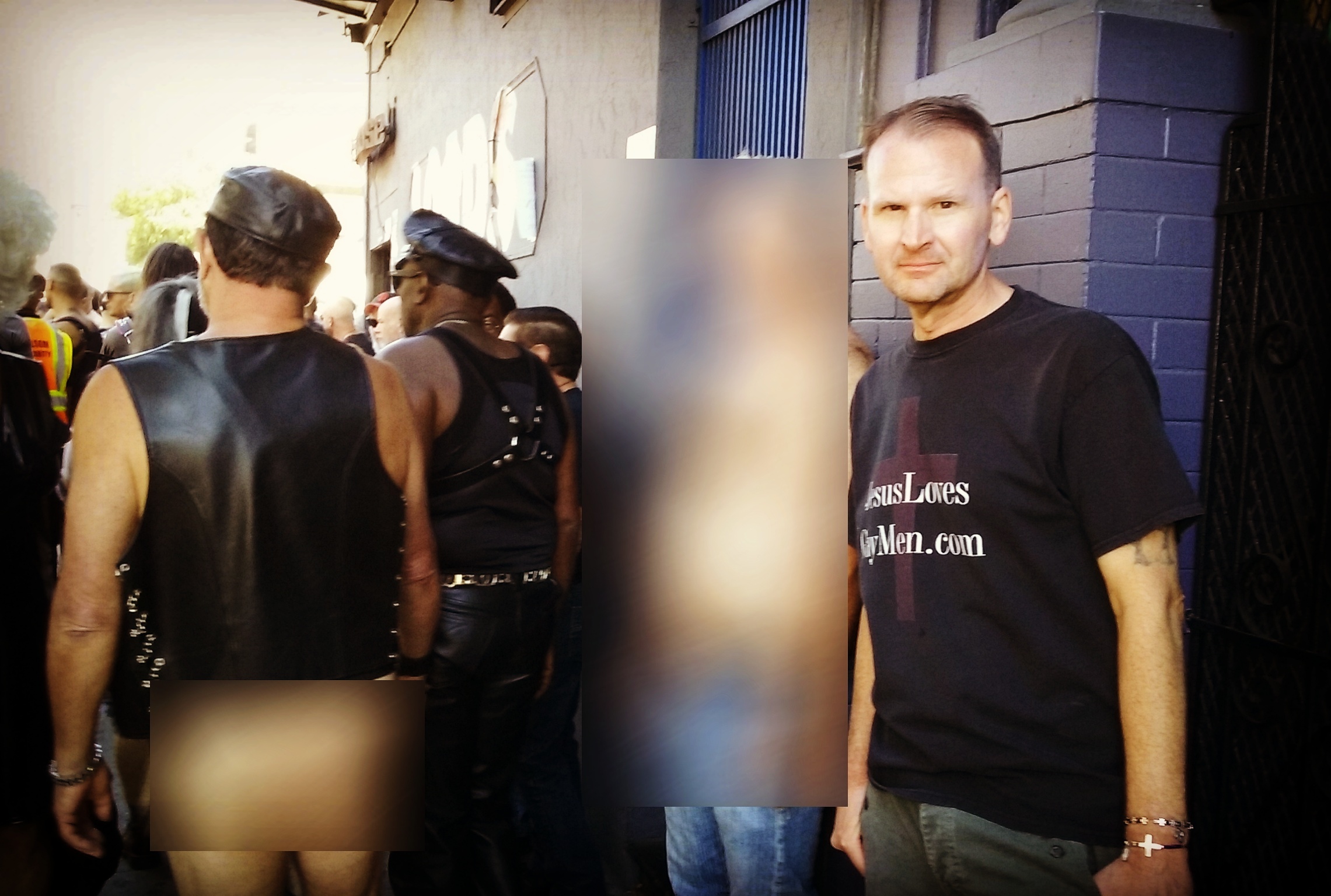
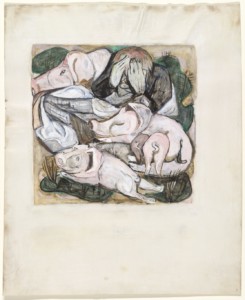
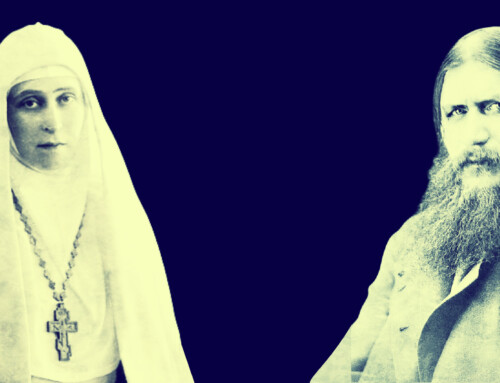
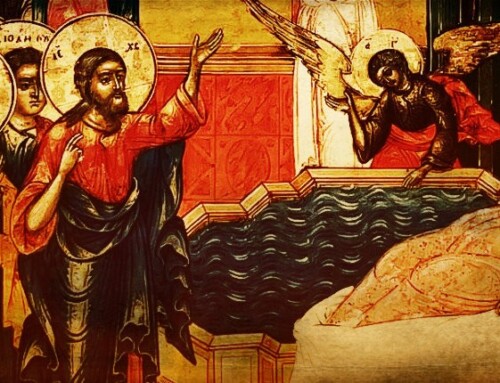
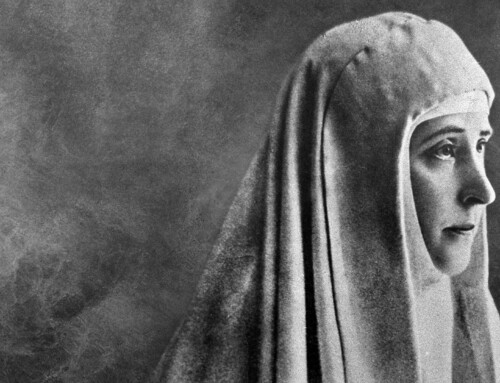
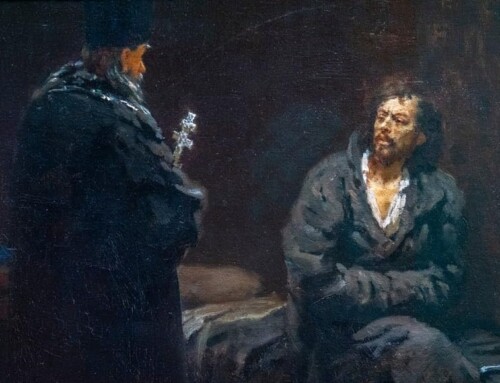
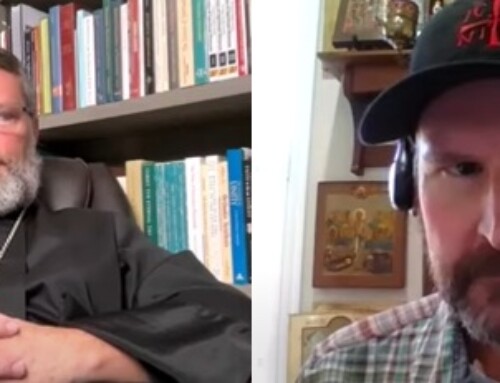
Joseph, I can definitely relate to your story. In my case, I lived through clergy sexual abuse in a Protestant “Fundy” church, that was all about hell. I was heavily involved with the leather scene, as well as the anonymous scene in Rochester, NY and in Boston. From the time that I was a kid, I was only interested in having other guys as friends. Fast forward many years, and I’m married (25 years) with two kids.
As usual thanks Joe.
Thanks for the insight and openness. Trusting that many will thereby be released from slavery.
Thank you for your insights, Joseph. While I reached out to several men trapped in the homosexual lifestyle trap after becoming a christian in the early 80s, I never had much hope for any change mostly due to their bluster and flamboyant desires. I now see that I was wrong. I limited our Lord’s power by my lack of faith and I did not see the calling concealed under the bluster. Thank you for helping to open my eyes not only to them, but to all who are strangling in sin’s unyielding choke-hold.